October 2018 Sustainable Development
Read the articles selected in October 2018
The changing nature of work
Source: World Bank
The quality of the work has changed with technology. The need for new skills to access and remain in the labor market is balanced by the demand for new goods and services and the creation of new sectors, that improve social inclusion. Investing in human capital enhancing social protection is a priority.
Read more:
http://documents.worldbank.org/curated/en/816281518818814423/pdf/2019-WDR-Report.pdf
Financing the UN Development System. Opening doors
Source: http://asvis.it
The SDGs will not be achieved without serious financial reform, which requires discussions around implementation, new approaches, partnerships, mechanisms and mindsets, with a serious understanding of the challenges that the 2030 Agenda represents.
Read more:
Cigarette smoking
Fonte: http://www.who.int
The smoke industry harms the environment and doesn’t help sustainable development. While the production of cigarettes implies deforestation, hydric pollution as well as pesticides, the profits from tobacco, which is cultivated in the developing world, end up in the developed countries.
Read more:
http://www.who.int/fctc/publications/WHO-FCTC-Enviroment-Cigarette-smoking.pdf?ua=1&ua=1
The state of food and agriculture 2018
Source: http://www.fao.org
Humankind was developed from migrations. Migrations are a pervasive global phenomenon, for the tangle of factors that put into play the Western world, although this is not in the first line among the host-countries.
Read more:
http://www.fao.org/state-of-food-agriculture/en/
Influenza: are we ready?
Source: http://www.who.int
Seasonal influence is never a common thing, and can hit a wide category of weak subjects for its high rate of spread, empowered by the close contact between people in the modern life, in the enclosed dimension of the modern life and its mobility.
Read more:
http://www.who.int/influenza/spotlight
United States reports new cases of puzzling, poliolike disease that strikes children
By Gretchen Vogel
Source: Science, 16 Ottobre
A new, apparently mild virus reported in the US can suddenly cause flaccid myelitis, a polio-like disease that is sometimes severe and irreversible. It is questioned why the virus paralyzes only a small minority of infected and previously healthy children. Experts are investigating a kind of genetic vulnerability to the virus.
Read more:
L’Italia e gli Obiettivi di Sviluppo Sostenibile
Source: http://asvis.it/
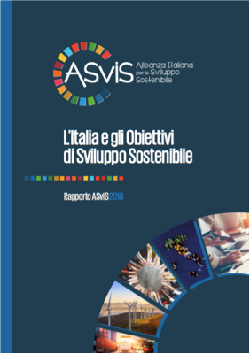
This paper highlights the importance of one integrated policy vision in the approach to the social issues, calling for a step forwards from the achievements of this government, and the acknowledgment of the circular action of economical, environmental and technological policies.
A future stolen: young and out of school
Source: https://data.unicef.org/
Education is the most potent equalizer of chances. Not only it is crucial for staying in the global economy, but it is just the so long pursued economic growth that leaves behind uneducated students and workers, from the early childhood for the rest of the life. Education is one of the fundamental pillars of the 2030 Agenda.
Read more:
Global warming must not exceed 1.5C, landmark UN report warns
By Jonathan Watts
Source: The Guardian, 8 October
The IPCC report presents the enormous benefits of keeping the global temperature under the threshold of 1.5C warmer than preindustrial levels, showing that it can be done without miracles of physics and chemistry, but only with a defined and determined political will.
IPCC says limiting global warming to 1.5°C will require drastic action
By Jeff Tollefson
Source: Nature, 8 October
Humanity is on track for around 3 degrees of warming with the policies put on the table so far. The good news is that the Paris target is nevertheless not in any way impossible if we comply with the deadlines established to achieve by 2050 the carbon neutrality.
Read more:
https://www.nature.com/articles/d41586-018-06876-2
La ONU urge medidas más duras para frenar el calentamiento
By Manuel Planelles
Source: El País, 8 October
The IPCC Report highlights how it is fundamental to aim at the target of 1.5C, instead of the 2C agreed in Paris, for the impact which the 2°C would have on health, livelihood, food security, water security, and economic growth, as we’ve already found out with the current 1°C global warming.
New bonds to finance sustainable development
By Chris Knight
Source: http://www.eib.org
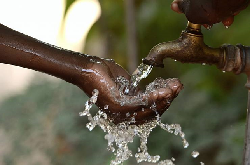
These Awareness Bonds are designed to fund projects related to SDGs such as drinking water and sanitation, in order to improve people’s quality of life by showing how it is possible to realize these goals with a transparent and responsible action.
Read more:
http://www.eib.org/en/stories/sustainability-awareness-bonds
Decline of Global Extreme Poverty continues but Has Slowed: World Bank
Source: http://www.worldbank.org
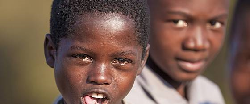
Despite the remarkable results achieved in the last 25 years, the long way to the goal of the end of extreme poverty is still long. The situation in Subsaharian Africa shows that without more efforts in investments, growth will leave out forever the remaining poor.
Read more:
World Bank group has a new tool for fighting famine: Artificial intelligence
By Peter Holley
Source: The Washington Post, 25 September
The reasons for famine crises are extremely complex. Famine can depend on climate or food price inflation, as well as political instability or terrorism. Famine prediction is a kind of science, but with a new algorithm, we will be able to forecast and act in real time.
Maladies non trasmissibles: l’ONU appelle à des mesures urgentes
Source: Le Figaro, 27 September
Noncommunicable illnesses do kill, especially in poor countries, but international aid is focused only on communicable diseases. A report produced by a commission of experts at the edge of the 73° General Assembly of the United Nations makes the point.
International Day of Older Persons 1 October
Source: http://www.un.org
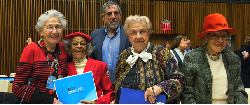
Inspired by the Universal Declaration of Human Rights, this celebration highlights the freedom and the needs of these disadvantaged persons, while the attention to this population group implies the importance of demographic strategies to achieving the SDGs.
Read more:
http://www.un.org/en/events/olderpersonsday/
Human Development Index
Source: http://asvis.it
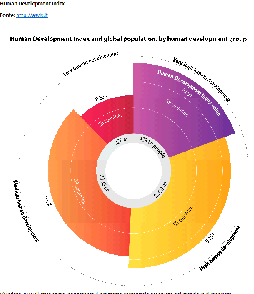
2018 Update shows that despite the substantial progress observed across the world in important dimensions, this progress is not linear and is reversible. As for education, it is important to focus on the quality of teaching, and not only the schooling. Of particular concern is the environmental degradation.
Read more:
http://report.hdr.undp.org/#collapseOne
Missed Opportunities: the high cost of not educating girls
Source: https://openknowledge.worldbank.org
Education matters for all children, but missing a girl in education has consequences for the whole community since it is related with child marriage and maternity and produces a spiral of poverty and inequalities which is perpetuated through generations.
Read more:
International technical guidance on sexuality education
Source: https://en.unesco.org/
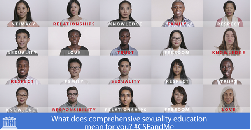
Within a context based on scientific evidence and human rights, sexual education develops self-esteem and respect for the own body and partner, fostering gender parity and responsibility for their own actions. It contributes to the formation of a society grounded on respect, tolerance, and empathy.
Read more:
http://unesdoc.unesco.org/images/0026/002607/260770e.pdf
Being good at maths could be good for your health
By Nicolas Jonas
Source: https://www.oecd.org/

Mathematics’ and numeracy’s skills help people to better understand many aspects of their health status, when they read quantitative medical indicators or are informed about risks and effects of treatments, prompting a more effective medical decision making.
Read more:
http://oecdeducationtoday.blogspot.com/2018/07/adult-numeracy-skills-health-effect.html
The Earth is looking for environmentally mindful students
By Alfonso Echazarra
Source: https://www.oecd.org/, 4 September

The environmental awareness is growing among young students, and the most conscious ones are the most scientifically-minded among their peers, albeit not the most optimistic. The environmental education is crucial to the sustainability of our Planet.
Read more:
Info
- Pubblicato il : 14/01/2019 Modificato il : 04/04/2019
Allegati
- La ONU urge medidas más duras para frenar el calentamiento pdf
- Global warming must not exceed 1.5C, landmark UN report warns pdf
- L'Italia e gli Obiettivi di Sviluppo Sostenibile pdf
- Maladies non trasmissibles: l’ONU appelle à des mesures urgentes pdf
- World Bank group has a new tool for fighting famine: Artificial intelligence pdf

